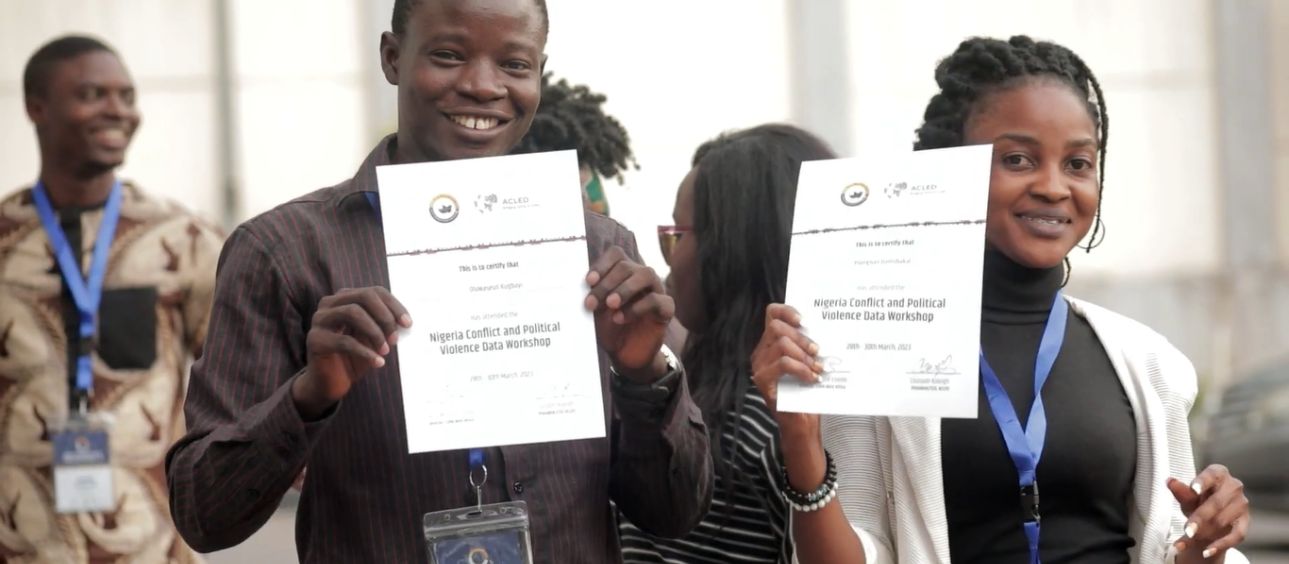Armed Conflict and Political Violence in Nigeria: Complex Drivers, Emerging Patterns and Impacts
Edited by Ebimboere Seiyefa, Tubodenyefa Zibima and Ifeanyi Onwuzuruigbo
For most of its history, Nigeria has witnessed different forms of armed conflict and political violence. These often manifest as electoral violence, resource conflicts, intra and inter-community conflicts, religious violence, and, more recently, violent extremism and terrorism. The chapters in this book investigate contemporary conflicts in Nigeria and draw attention to the heterogeneous yet intersecting drivers and actors in these conflicts. Focusing on critical conflict issues in Nigeria’s six geopolitical zones, it examines essential elements of state and non-state response, gender dynamics, state capture, and vigilantism, including the opportunities for restorative justice in the Lake Chad region. This book adopts a micro-dynamics approach to the study of conflicts, thus providing unique empirical insights on armed conflict and political violence in Nigeria, which are too often glossed over in the study of insecurity in Nigeria.
Foreword by Cyril Obi
General Introduction
Chapter One: A taxonomy of Conflict and Political Violence in Nigeria
Authors: Tarila Marclint Ebiede & Oluwaseun Kugbayi
Chapter Two: Do interethnic Relations Remain Cordial when Resource
Conflicts Become Intractable? Insights from Nigeria
Author: Dare Leke Idowu
Chapter Three: State Capture Networks, Benefit Grabbing and Microlevel
Conflicts in Resource-rich Communities in the Niger Delta
Author: Tubodenyefa Zibima
Chapter Four: Gender Ideologies and Militant Activities in Nigeria’s Niger
Delta Oilscape
Author: Esther Egele-Godswill
Chapter Five: Finding the Nexus Between Social Protection Programmes and
Peace in the Niger Delta Region of Nigeria
Author: Victor Ikechukwu Ogharanduku
Chapter Six: Resolving the Cliffhanger: A Case for Dialogue Pathway to
Insecurity and Violent Conflicts in Southeastern Nigeria
Authors: Ben Ugochukwu Nwosu and Ndu Nwokolo
Chapter Seven: Expounding Farmer-herder Violence in Eastern Nigeria: The
Case of the 2016 Nimbo-Ukpabi Incident in Enugu State
Author: Ngozika Obi-Ani
Chapter Eight: Dynamics of Armed ‘banditry’ in Nigeria’s Northwest
Region
Author: Obi Anyadike
Chapter Nine: Boko Haram Transnational Terrorism and Counterinsurgency in
the Lake Chad Region
Authors: Stephen Nnaemeka Azom and Casmir Chukwuka Mbaegbu
Chapter Ten: Building Community Resistance and Resilience to Terrorism in
West Africa: An Exposition of the Civilian Joint Task Force in Nigeria
Authors: Joseph Ochogwu and Olalekan A. Babatunde
Chapter Eleven: Nigeria’s Counter-terrorism Programme: Perpetrator
Rehabilitation or Victim Negligence? Implications for National Security
Author: Attah Barkindo
Chapter Twelve: The Pitfalls of Restorative Justice in Communities Affected
by the Boko Haram Insurgency
Author: Ndubuisi Christian Ani
Chapter Thirteen: Vanguards on Overwatch: Vigilantism and Non-state
Responses to Banditry-induced Armed Conflict in Northwest Nigeria
Author: Folahanmi Aina
Chapter Fourteen: State Response to Armed Conflict and Political Violence
in Nigeria
Author: Ebimboere Seiyefa
Ebimboere Seiyefa is a Senior Lecturer at BAZE University, Abuja and Head
of Research at Conflict Research Network West Africa (CORN).
Tubodenyefa Zibima is a Senior Lecturer at Niger Delta University,
Wilberforce Island, Deputy Director at the Institute for Niger Delta
Studies and Member of Conflict Research Network West Africa (CORN).
Ifeanyi Onwuzuruigbo is a Senior Lecturer at the University of Ibadan and a
Member of the Conflict Research Network West Africa
“…the book vividly captures five critical thematic areas that underpin the evolving and diverse drivers, geographies, political economies, and trans-border and transnational dimensions of armed conflict since Nigeria’s return to democratic rule in 1999, after decades of military authoritarianism. The contributors to this volume, go beyond mainstream narratives to critically analyze the escalation in the levels of violence since 2010, when some of the conflicts assumed insurgent and terrorist dimensions, including banditry, and identity-driven violence. They explore and navigate the complex and multilayered levels of conflict and political violence based on case studies in various parts of the country… providing a compelling narrative that significantly contributes to a better understanding of the diverse and complex forms and impacts of armed conflict and violence in Nigeria.” – Cyril Obi, Director, African Peacebuilding Programme and Next Generation Social Science in Africa, Social Science Research Council, New York
Buy this book at Roving Heights Bookshop Online





